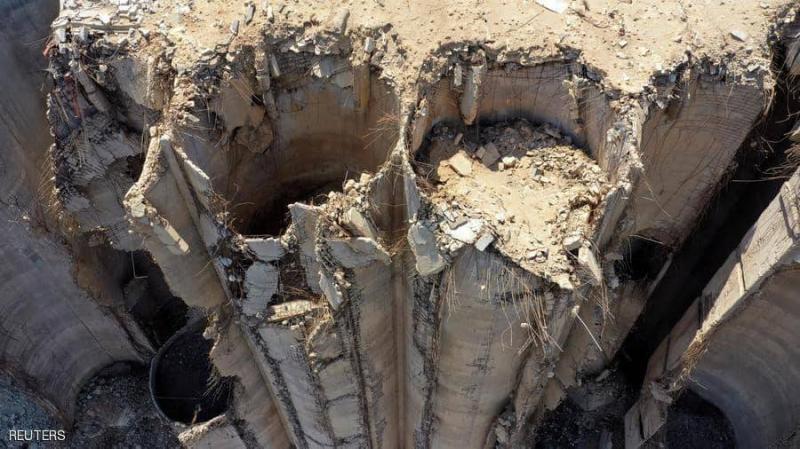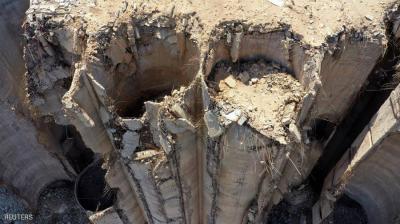Nidaa Al-Watan reports that with much "nervousness and partisanship," Prime Minister Najib Mikati is addressing the "capital control" file, pressing for its quick approval by the Parliament, in cooperation with Speaker Nabih Berri, to pass a "deal" to finance the bankruptcy at the expense of depositors with minimal damage to the banks and the state before the current government's term ends alongside the current Parliament's term.
Yesterday, Mikati's irritation was evident in his tone during the Cabinet session at the Grand Serail, where he criticized opposing MPs for their current proposal of the law, accusing them of having "populist goals." He ignored the fact that the government is evading its responsibilities in passing a "recovery plan" and attempting to sidestep the obligation to link it to a consistent and coordinated reform context with the overall framework of the "capital control" law. This should not just identify "losses" and write off tens of billions of dollars from the Central Bank's debts but should also lay out a clear path for distributing the percentages of these losses between the state and the banks as the two parties directly responsible for the crime of squandering public and private funds in the treasury, reaching to draw a clear roadmap for the legal and timely ways to return depositors' funds.
With the absence of internal and external trust in any reform measure that may emerge from the corrupt state system leading to its financial collapse, hopes and expectations are now directed towards initiatives and direct assistance for Lebanese citizens without going through the official channels of the ruling authority. Prominently, there is the Saudi-French funding fund for "humanitarian, developmental, health, and educational" projects in Lebanon valued at 72 million euros, equally shared between the Kingdom and Paris. Nidaa Al-Watan learned that the Saudi ambassador's visit to the government headquarters yesterday was in preparation for launching the fund's execution mechanisms "before Eid al-Fitr," with no connection to the Prime Minister's planned visit to Saudi Arabia. Mikati is still waiting to obtain a "visa" from the Saudi leadership in Riyadh to hold meetings with officials in the Kingdom on the sidelines of his pilgrimage during the last ten days of this Ramadan.
In a separate context, it was announced that Chilean police detained Portuguese citizen Jorge Moreira, wanted under an "Interpol" notice in connection with the shipping of "ammonium nitrate" from Mozambique to the Port of Beirut several years prior to its explosion on August 4, 2020. Upon his arrival at Santiago airport from Spain, authorities simply sent him back to Madrid, where it was reported at night that Spanish authorities granted him "conditional release," prohibiting him from leaving the country while a request for his extradition to Lebanon was being reviewed by Spain's Supreme Court.
According to the Portuguese newspaper Jornal de Noticias, Moreira worked until 2016 at an explosives factory in Mozambique. As an employee of the company, he submitted an order to purchase a shipment of "ammonium nitrate" intended to be transported from Georgia to Mozambique, but it ended up being stored at the Port of Beirut. The report highlighted that Lebanon had not provided all necessary documents within the required timelines to the "Porto Appeals Court" to respond to the extradition request to Beirut last June.
Consequently, legal sources questioned the seriousness of the Lebanese authorities' efforts to extradite Moreira from Spain, explaining that he constitutes the "thread" in the nitrate shipment, and hinted that "the parties obstructing the judicial investigation into the port explosion crime would not allow his transfer to Lebanon due to the information he possesses that could form the cornerstone in revealing all the threads of the ammonium nitrate shipment to Beirut and the benefiting parties."
In this context, attention was drawn to reports from Al-Arabiya channel yesterday, quoting its sources about "Iran's involvement in bringing the nitrate shipment to the Port of Beirut," explaining that "Iranian presence in Georgia passes through Azerbaijan, with Tehran embedded in the ports of Poti and Batumi from which this shipment originated." It added that the "Rosus" vessel's journey from Georgia to Madagascar was meant to be a cover, considering that "Tehran sought through the 'Madagascar play' to disguise the transfer of the nitrates to Beirut, where Hezbollah oversaw their storage in the port."




